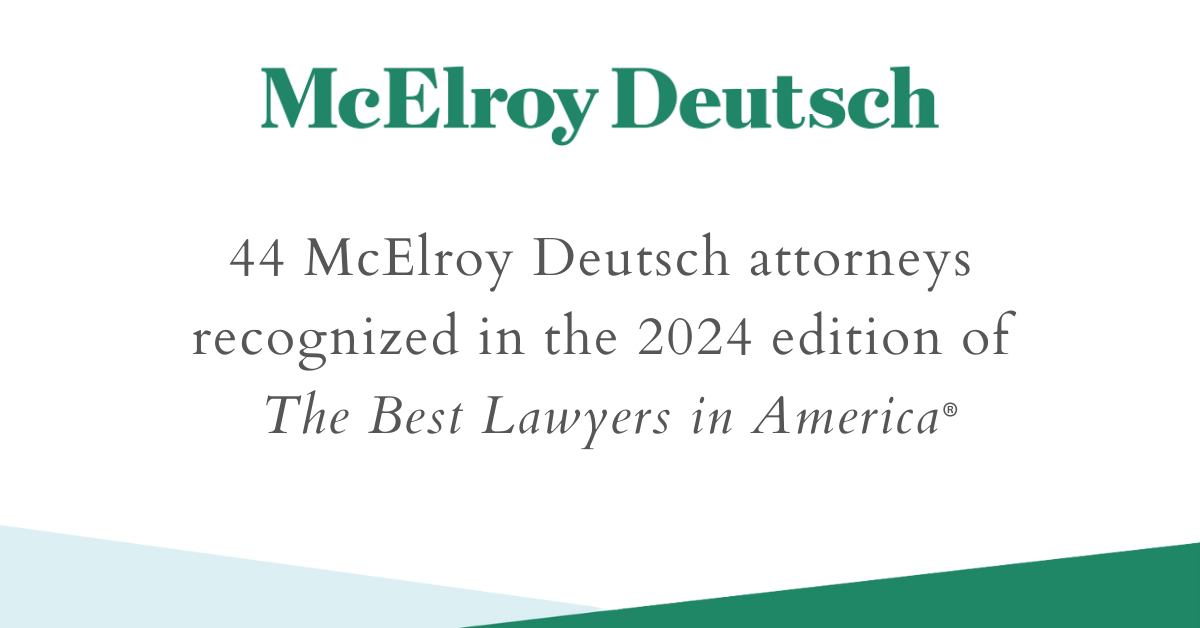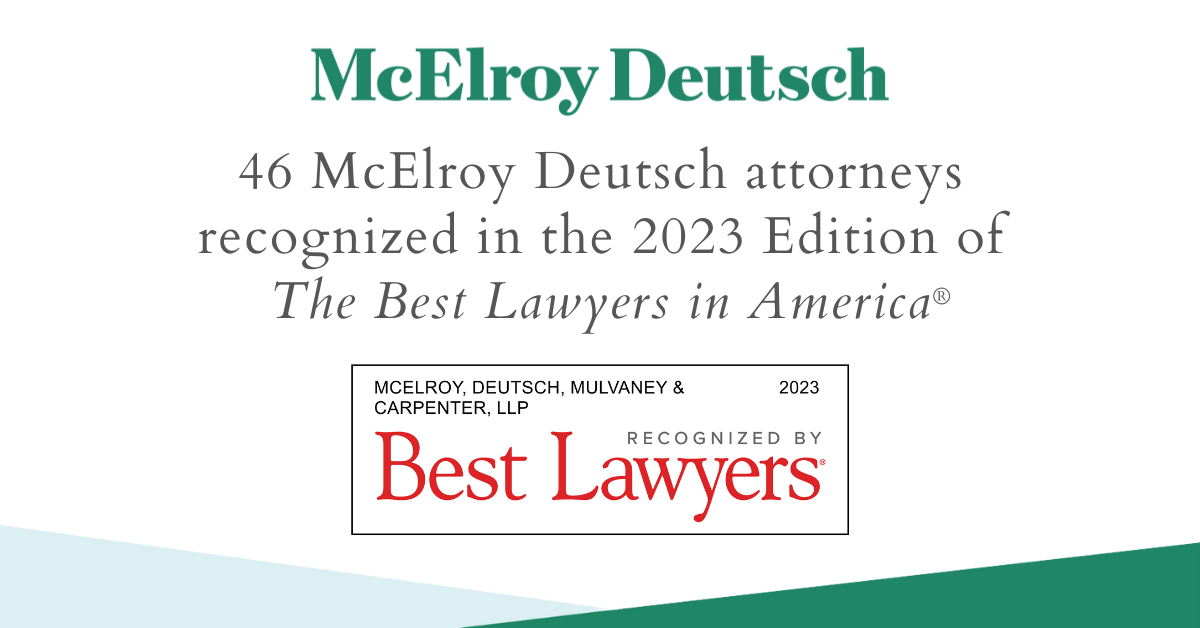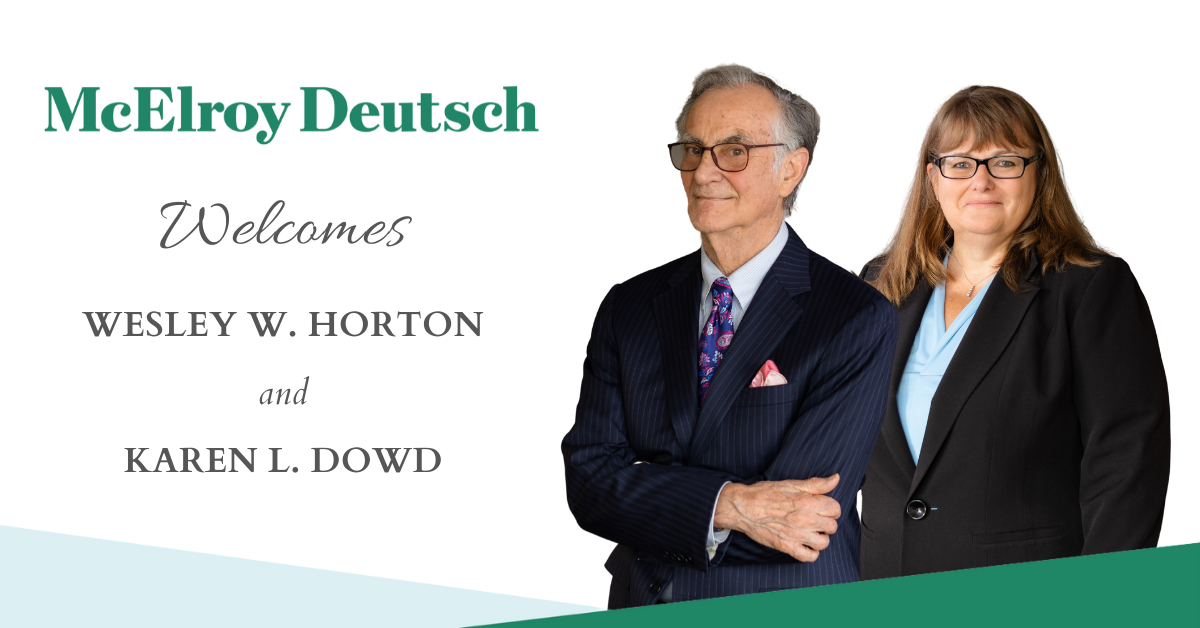Wesley W. Horton

WESLEY W. HORTON is Of Counsel in the Firm’s Hartford, Connecticut office. Mr. Horton’s appellate practice covers a wide variety of legal issues, from constitutional matters, to domestic relations, insurance, personal injury, and land use. He began his law career as the law clerk to Justice Charles House of the Connecticut Supreme Court (1970 to 1971). Building on that experience, he has participated in some of the most notable cases in Connecticut, representing individuals and corporations. The list of cases on which he appears as counsel, either at argument or on the brief, spans 50 years and numbers in the hundreds. He has argued more than 135 cases to the Connecticut Supreme Court and is well-known for representing the City of New London in Kelo v. New London before the U.S. Supreme Court in 2005.
Mr. Horton consults with counsel at the trial level to assist with complicated legal matters or in preparation for possible appellate issues. Such cases include representation of insurers and plaintiffs, contract questions, coverage issues and divorce litigation involving multi-million dollar estates.
He has been a Fellow of the American Academy of Appellate Lawyers since 1991. Membership in the Academy is by invitation only. Mr. Horton served as President of the American Counsel Association (2008-2009), of which he has been a member since 1991. He has been President of the Connecticut Supreme Court Historical Society since its founding in 2005.
Mr. Horton represents lawyers on ethical matters. He also testifies as an expert witness in Connecticut trial courts on ethical and malpractice matters as well as with regard to attorney’s fees. He served as the Chair of the Connecticut Bar Association’s Professional Ethics Committee (1997 through 2007), and has been a member of the Committee since 1976.
Mr. Horton is a graduate of Harvard College and the University of Connecticut School of Law, and the author or co-author of several scholarly publications and articles on legal topics. He is the recipient of many professional awards, including the University of Connecticut Law School Alumni Association’s Medal of Excellence; and currently serves on the Board of Editors for the Connecticut Law Tribune, and as a Lecturer and Adjunct Professor at the University of Connecticut School of Law . He has been co-author since 1978 of the annually published Connecticut Appellate Rules Annotated and the Connecticut Superior Court Rules Annotated, both published by Thomson/West. He also co-authored the “Connecticut Appellate Review,” an annual review of Connecticut Supreme and appellate Court cases, from1980 to 2022. Mr. Horton authored the History of the Connecticut Supreme Court, published by West Publishing. He also wrote The Connecticut State Constitution, an in-depth study of each provision of the Connecticut Constitution. Mr. Horton taught Appellate advocacy at the University of Connecticut School of Law most years from 1980 to 2023 and frequently lectures on constitutional and appellate issues.
- Martindale-Hubbell AV Preeminent Rated (2024) - Martindale-Hubbell's highest peer rating standard. This is given to attorneys who are ranked at the highest level of professional excellence for their legal expertise, communication skills, and ethical standards by their peers. A description of the standard or methodology on which the accolade is based can be found HERE (No aspect of the advertisement has been approved by the Supreme Court).
- Listed in Best Lawyers® (1995-2024), a Woodward/White, Inc. business, and partners with U.S. News & World Report, in the areas of Appellate Practice and Commercial Litigation. He was also recognized as the 2011 "Lawyer of the Year" for Appellate Practice in the Hartford area. A description of the standard or methodology on which the accolade is based can be found HERE (No aspect of the advertisement has been approved by the Supreme Court).
- Listed in Super Lawyers® (2006-2022), a Thomson Reuters business, in the area of Appellate Law in Connecticut. He was selected as a Top 10 Connecticut Super Lawyer in 2006, Top 50 Connecticut Super Lawyer in 2006-2009, 2011-2019, and a Top 100 New England Super Lawyer, 2007, 2013, 2015 and 2019. A description of the standard or methodology on which the accolade is based can be found HERE (No aspect of the advertisement has been approved by the Supreme Court).
Results may vary depending on your particular facts and legal circumstances
Attorney Horton has argued over 200 appeals to the Connecticut Supreme and Appellate Courts, several cases to the Second Circuit Court of Appeals, and as one major constitutional case to the United State Supreme Court. He has been substantially involved in numerous other appellate matters. A few of the representative cases that he has argued are listed below.
- Mills v. Hartford Healthcare Corp., 347 Conn. 524 (2023) (construing the Governor's COVID immunity order)
- Kelo v. City of New London, 545 U.S. 469 (2005) (taking of unblighted properties by eminent domain for economic development plan did not violate Fifth Amendment)
- Kovachich v. Dept. of Mental Health & Addiction Services, 344 Conn. 777 (2022) (use of settlement communications to show participation in the good faith interactive process in job discrimination case)
- State v. Bemer, 339 Conn. 528 (2021) (Connecticut Constitution limits court-ordered examination of alleged sexual offender for a sexually transmitted disease)
- Munn v. Hotchkiss School, 326 Conn. 540 (2017) (public policy supported imposing duty on school to warn about foreseeable insect-borne diseases)
- Trusz v. UBS Realty Investors, LLC, 319 Conn. 175 (2015) (case addressing free speech principles of Connecticut Constitution and employer’s interest in controlling messaging)
- Archambault v. Soneco/Northeastern, Inc., 287 Conn. 20 (2008) (general contractor should have been allowed to present evidence that subcontractor’s conduct was sole proximate cause of injuries to its employee)
- Friezo v. Friezo, 281 Conn. 166 (2007) (court upheld enforcement of prenuptial agreement, establishing standards for assessing enforceability of such agreements)
- Glazer v. Dress Barn, Inc., 274 Conn. 33 (2005) (reversing $30 million verdict and directing judgment for the defendant)
- Perodeau v. City of Hartford, 259 Conn. 729 (2002) (where employment relationship was continuing, municipal employees were not liable to each other for negligent infliction of emotional distress or under CT Fair Employment Practices Act)
- Craine v. Trinity College, 259 Conn. 625 (2002) (in employment dispute between professor and college, won on breach of contract and negligent misrepresentation counts)
- Wagner v. Clark Equipment Co., 243 Conn. 168 (1997) (trial court erred in failing to instruct jury that that two or more forces may combine to create a superseding cause of an injury)
- State v. Wilson, 242 Conn. 605 (1997) (defendant was entitled to insanity defense if, as a result of his mental disease or defect, he sincerely believed that society would approve of his conduct in the situation as he understood it)
- Sheff v. O’Neill, 238 Conn. 1 (1996) (Connecticut Constitution provides rights to equal, free, and public education beyond those provided in the U.S. Constitution; declaratory judgment entered on minority students challenge to de facto segregation)
- Nielsen v. State, 236 Conn. 1 (1996) (Court could not compel General Assembly to define terms needed for a constitutional spending cap: question was a nonjusticiable Legislative Branch issue)
- Woodcock v. Journal Publishing Co., 230 Conn. 525 (1994) (defamation judgment against newspaper was unsupported by the evidence: no clear and convincing evidence of actual malice)
- Fair Cadillac-Oldsmobile Isuzu Partnership v. Bailey, 229 Conn. 312 (1994) (state prohibition of car sales on Sundays was arbitrary and therefore violated state constitution)
- Fahy v. Fahy, 227 Conn. 505 (1993) (trial court compared incompatible income in determining a motion for upward modification of alimony)
- Matza v. Matza, 226 Conn. 166 (1993) (denial of motion for mistrial after attorney withdrew was not abuse of discretion in light of circumstances; established standard for how to handle trial-time withdrawal of attorney)
- Fonfara v. Reapportionment Commission, 222 Conn. 166 (1992) (Court would not correct alleged errors in reapportionment commission’s redistricting plan absent evidence that the plan was unconstitutional)
- Pellegrino v. O’Neill, 193 Conn. 670 (1984) (courts could not mandate appointment of additional judges to reduce backlog)
- Ehrenkranz v. Ehrenkranz, 2 Conn. App. 416 (1984) (award of distribution of property in dissolution action could not stand where trial court made computational error, even though award was within scope of discretion)
- Prokolkin v. General Motors Corp., 170 Conn. 289 (1976) (statute of limitations was not tolled by a continuing failure to warn of a defective product)
WESLEY W. HORTON is Of Counsel in the Firm’s Hartford, Connecticut office. Mr. Horton’s appellate practice covers a wide variety of legal issues, from constitutional matters, to domestic relations, insurance, personal injury, and land use. He began his law career as the law clerk to Justice Charles House of the Connecticut Supreme Court (1970 to 1971). Building on that experience, he has participated in some of the most notable cases in Connecticut, representing individuals and corporations. The list of cases on which he appears as counsel, either at argument or on the brief, spans 50 years and numbers in the hundreds. He has argued more than 135 cases to the Connecticut Supreme Court and is well-known for representing the City of New London in Kelo v. New London before the U.S. Supreme Court in 2005.
Mr. Horton consults with counsel at the trial level to assist with complicated legal matters or in preparation for possible appellate issues. Such cases include representation of insurers and plaintiffs, contract questions, coverage issues and divorce litigation involving multi-million dollar estates.
He has been a Fellow of the American Academy of Appellate Lawyers since 1991. Membership in the Academy is by invitation only. Mr. Horton served as President of the American Counsel Association (2008-2009), of which he has been a member since 1991. He has been President of the Connecticut Supreme Court Historical Society since its founding in 2005.
Mr. Horton represents lawyers on ethical matters. He also testifies as an expert witness in Connecticut trial courts on ethical and malpractice matters as well as with regard to attorney’s fees. He served as the Chair of the Connecticut Bar Association’s Professional Ethics Committee (1997 through 2007), and has been a member of the Committee since 1976.
Mr. Horton is a graduate of Harvard College and the University of Connecticut School of Law, and the author or co-author of several scholarly publications and articles on legal topics. He is the recipient of many professional awards, including the University of Connecticut Law School Alumni Association’s Medal of Excellence; and currently serves on the Board of Editors for the Connecticut Law Tribune, and as a Lecturer and Adjunct Professor at the University of Connecticut School of Law . He has been co-author since 1978 of the annually published Connecticut Appellate Rules Annotated and the Connecticut Superior Court Rules Annotated, both published by Thomson/West. He also co-authored the “Connecticut Appellate Review,” an annual review of Connecticut Supreme and appellate Court cases, from1980 to 2022. Mr. Horton authored the History of the Connecticut Supreme Court, published by West Publishing. He also wrote The Connecticut State Constitution, an in-depth study of each provision of the Connecticut Constitution. Mr. Horton taught Appellate advocacy at the University of Connecticut School of Law most years from 1980 to 2023 and frequently lectures on constitutional and appellate issues.
- Martindale-Hubbell AV Preeminent Rated (2024) - Martindale-Hubbell's highest peer rating standard. This is given to attorneys who are ranked at the highest level of professional excellence for their legal expertise, communication skills, and ethical standards by their peers. A description of the standard or methodology on which the accolade is based can be found HERE (No aspect of the advertisement has been approved by the Supreme Court).
- Listed in Best Lawyers® (1995-2024), a Woodward/White, Inc. business, and partners with U.S. News & World Report, in the areas of Appellate Practice and Commercial Litigation. He was also recognized as the 2011 "Lawyer of the Year" for Appellate Practice in the Hartford area. A description of the standard or methodology on which the accolade is based can be found HERE (No aspect of the advertisement has been approved by the Supreme Court).
- Listed in Super Lawyers® (2006-2022), a Thomson Reuters business, in the area of Appellate Law in Connecticut. He was selected as a Top 10 Connecticut Super Lawyer in 2006, Top 50 Connecticut Super Lawyer in 2006-2009, 2011-2019, and a Top 100 New England Super Lawyer, 2007, 2013, 2015 and 2019. A description of the standard or methodology on which the accolade is based can be found HERE (No aspect of the advertisement has been approved by the Supreme Court).
Results may vary depending on your particular facts and legal circumstances
Attorney Horton has argued over 200 appeals to the Connecticut Supreme and Appellate Courts, several cases to the Second Circuit Court of Appeals, and as one major constitutional case to the United State Supreme Court. He has been substantially involved in numerous other appellate matters. A few of the representative cases that he has argued are listed below.
- Mills v. Hartford Healthcare Corp., 347 Conn. 524 (2023) (construing the Governor's COVID immunity order)
- Kelo v. City of New London, 545 U.S. 469 (2005) (taking of unblighted properties by eminent domain for economic development plan did not violate Fifth Amendment)
- Kovachich v. Dept. of Mental Health & Addiction Services, 344 Conn. 777 (2022) (use of settlement communications to show participation in the good faith interactive process in job discrimination case)
- State v. Bemer, 339 Conn. 528 (2021) (Connecticut Constitution limits court-ordered examination of alleged sexual offender for a sexually transmitted disease)
- Munn v. Hotchkiss School, 326 Conn. 540 (2017) (public policy supported imposing duty on school to warn about foreseeable insect-borne diseases)
- Trusz v. UBS Realty Investors, LLC, 319 Conn. 175 (2015) (case addressing free speech principles of Connecticut Constitution and employer’s interest in controlling messaging)
- Archambault v. Soneco/Northeastern, Inc., 287 Conn. 20 (2008) (general contractor should have been allowed to present evidence that subcontractor’s conduct was sole proximate cause of injuries to its employee)
- Friezo v. Friezo, 281 Conn. 166 (2007) (court upheld enforcement of prenuptial agreement, establishing standards for assessing enforceability of such agreements)
- Glazer v. Dress Barn, Inc., 274 Conn. 33 (2005) (reversing $30 million verdict and directing judgment for the defendant)
- Perodeau v. City of Hartford, 259 Conn. 729 (2002) (where employment relationship was continuing, municipal employees were not liable to each other for negligent infliction of emotional distress or under CT Fair Employment Practices Act)
- Craine v. Trinity College, 259 Conn. 625 (2002) (in employment dispute between professor and college, won on breach of contract and negligent misrepresentation counts)
- Wagner v. Clark Equipment Co., 243 Conn. 168 (1997) (trial court erred in failing to instruct jury that that two or more forces may combine to create a superseding cause of an injury)
- State v. Wilson, 242 Conn. 605 (1997) (defendant was entitled to insanity defense if, as a result of his mental disease or defect, he sincerely believed that society would approve of his conduct in the situation as he understood it)
- Sheff v. O’Neill, 238 Conn. 1 (1996) (Connecticut Constitution provides rights to equal, free, and public education beyond those provided in the U.S. Constitution; declaratory judgment entered on minority students challenge to de facto segregation)
- Nielsen v. State, 236 Conn. 1 (1996) (Court could not compel General Assembly to define terms needed for a constitutional spending cap: question was a nonjusticiable Legislative Branch issue)
- Woodcock v. Journal Publishing Co., 230 Conn. 525 (1994) (defamation judgment against newspaper was unsupported by the evidence: no clear and convincing evidence of actual malice)
- Fair Cadillac-Oldsmobile Isuzu Partnership v. Bailey, 229 Conn. 312 (1994) (state prohibition of car sales on Sundays was arbitrary and therefore violated state constitution)
- Fahy v. Fahy, 227 Conn. 505 (1993) (trial court compared incompatible income in determining a motion for upward modification of alimony)
- Matza v. Matza, 226 Conn. 166 (1993) (denial of motion for mistrial after attorney withdrew was not abuse of discretion in light of circumstances; established standard for how to handle trial-time withdrawal of attorney)
- Fonfara v. Reapportionment Commission, 222 Conn. 166 (1992) (Court would not correct alleged errors in reapportionment commission’s redistricting plan absent evidence that the plan was unconstitutional)
- Pellegrino v. O’Neill, 193 Conn. 670 (1984) (courts could not mandate appointment of additional judges to reduce backlog)
- Ehrenkranz v. Ehrenkranz, 2 Conn. App. 416 (1984) (award of distribution of property in dissolution action could not stand where trial court made computational error, even though award was within scope of discretion)
- Prokolkin v. General Motors Corp., 170 Conn. 289 (1976) (statute of limitations was not tolled by a continuing failure to warn of a defective product)



